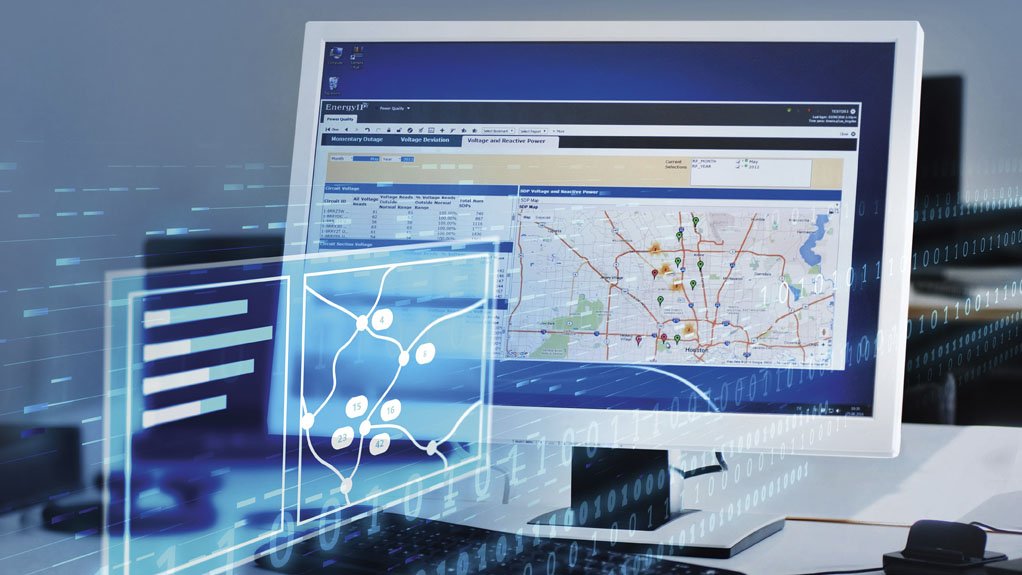Smart water solution technology will redefine everything the water and wastewater industries do, the extent of which we cannot begin to fathom, enthuses independent international engineering and project management consultancy Royal HaskoningDHV global business line for water director Anke Mastenbroek.
“While change has already occurred, there is much more still to come in this new field.”
Royal HaskoningDHV has implemented smart water solutions to great effect in the Netherlands, and South Africa could enjoy the same benefits, she tells Engineering News.
Royal HaskoningDHV associate electronic engineer Tendai Mukwati concurs that smart water solutions will help the water industry maximise the management of water systems as well as optimise the potential of existing water management systems. She indicates that these solutions are driven by very simple triggers which have inherent complexities, such as urbanisation.
Mukwati adds that this requires a shift in mindset away from conventional infrastructure build solutions to more cost efficient alternate options. There are instances where the budget is simply not sufficient to cater for massive infrastructure builds, and smart solutions can add to the bottom line leading to 20% to 25% annual exponential growth.
Unpacking Smart Solutions
“Smart solutions are the interconnection of existing technologies which involves collecting a tremendous amount of raw data. On its own, this has little use but, in combination with artificial intelligence – teaching a machine to deduce meaning – we can convert this into useful information to be used for predicting scenarios,” Mastenbroek explains.
The biggest innovation in the water and wastewater industries is extrapolating useful information from ‘big data’ for the future and using the intelligence gleaned to subsequently implement solutions. She reminisces that an engineer’s job and scope of work used to be contained to calculations and measuring data with a significant lapse between analysis and implementation.
Mastenbroek uses the analogy of the smartphone to relay how innovations are the combination of different knowledge. This analogy was explained to her by futurist Michell Zappa. A smartphone is a combination of individual features such as Global Positioning System (GPS), data processing, a touch screen and so forth. However, each of these features were first developed in their own right. “For example, compass information needed to be linked to satellite imagery to create a GPS. Similarly, the foundations for smart water solutions date back to the 1700s, but now through the evolution of constant innovation, progress, and the combination of technologies, big data is combined with the accumulation of knowledge acquired to date,” she explains.
Effecting Smart Solutions
“Our smart solutions are built for demand, designed to aid existing operations for basic human needs,” says Mukwati. The company’s Aquasuite OPIR system is an example of its smart water solutions, controlling 75% of the water system in the Netherlands. It is predictive software which runs on a standard computer.
Mastenbroek explains that a tremendous amount of data collected over the years is processed by the software converting it into usable, useful information on the amount of water required per area and user demand. The water system is then steered on predictive demand. For example, ahead of a sporting event, the system will predict the increased water demand and regulate the system accordingly.
Mukwati adds: “OPIR will, for example, allow water authorities to only activate pumps on demand rather than running all the time and reduce the need for building new reservoirs or pipes, which is cost intensive. This provides environmental benefits through optimised energy efficiency.”
An added advantage of this system is that, through the data collected, the system will alert to problems such as leakages, discerned by the discrepancy of areas using more water than required but not generating revenue. “The only prerequisite for implementing OPIR is that water systems have instrumentation (sensors) in place, which is quite diffused in South Africa,” he notes.
A smart technology for wastewater is the Aquasuite PURE system, a form of which is in place in the Western Cape. “This is a decision support system and is not fully automated, unlike the full PURE system. Rather, it monitors the basic sensor information and feeds leads to operators who manually implement the actionable information the system generates,” says Mukwati.
“There is growing interest into the great potential of predictive smart solutions and, if we tap into it, it can provide impetus to increase efficiencies countrywide. Making future thinking top of mind and embracing innovations to solve basic needs will fast-track improving South Africa’s socioeconomic situation,” Mastenbroek proffers.
The company is also focusing on the rest of the continent, wherever water is a scarce resource and the company is operational. “Even though the uptake of smart water technology may be slow in Africa, I am confident it will increase,” concludes Mukwati.
Edited by: Zandile Mavuso
Creamer Media Senior Deputy Editor: Features
EMAIL THIS ARTICLE SAVE THIS ARTICLE
ARTICLE ENQUIRY
To subscribe email subscriptions@creamermedia.co.za or click here
To advertise email advertising@creamermedia.co.za or click here













